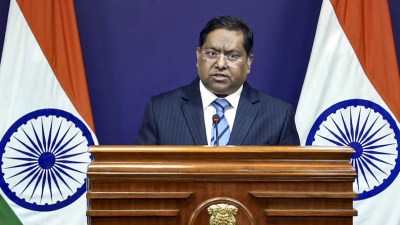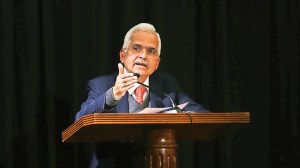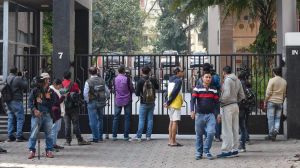After space window, US opens defence doors
Despite major distractions such as the presidential elections, India and the US are expanding their relationship with enhanced defence coope...

Despite major distractions such as the presidential elections, India and the US are expanding their relationship with enhanced defence cooperation to follow the 8216;8216;high technology8217;8217; partnership in civilian space programmes and delinking of nuclear and missile defence issues.
As a manifestation of this continuously upgraded defence cooperation, India and the US will conduct another two sets of joint naval exercises in October, both off the Malabar coast. Sources here pointed out that with the Iraq theatre still hot, the Arabian Sea-Persian Gulf region continues to play a key role in American strategic thinking.
Interestingly, the green signal for enhanced defence cooperation was given even as the two political establishments gingerly tested the waters after the new Congress government took over in New Delhi.
Three sets of joint exercises, by the two Air Forces in Alaska and the Armies in Hawaii and Leh, have set the stage for inspired military-to-military confidence and trust.
In fact, the Pentagon had designated India as a 8216;8216;friendly foreign country8217;8217; in a July 2003 note8212; a fact that was reiterated again the same time this year8212;along with nations like Austria, Brazil, Bulgaria, Finland, Singapore, South Africa, Sweden, Switzerland, Kuwait and Ukraine.
The designation acquires significant importance, considering that India, under the stewardship of former PM Vajpayee, had formally turned down a US request for troops to Iraq in the same month last year.
And, the signature of the reinvented relationship, the somewhat wordily-named 8216;New Steps in Strategic Partnership8217; NSSP that was announced on the eve of PM Manmohan Singh8217;s visit to the US8212;the gazette notification came into being on September 228212;is yet another key building block in this effort, sources said.
For instance, soon after the NSSP was first announced as a major bilateral project in January, between the then BJP government and Washington, the US indicated its desire to involve India as a partner in international space cooperative research and design and acquisition efforts.
For the first time, the US dropped its objections to India as an independent space power in February, and accepted that along with NATO member states and major non-NATO allies like Egypt, Israel, Japan and Jordan Pakistan doesn8217;t figure in this list, despite its status as such an ally, India could join this exclusive club.
The significance of this space cooperation, officials pointed out, cannot be overestimated. For the first time, the US was willing to 8216;8216;outsource8217;8217; research and design in space technology to India. Barely seven months later, the two countries were signing the NSSP, under which first step sanctions against the Indian Space Research Organisation ISRO were lifted.
This joining of forces between space and defence comes in the wake of a quietly expanding political cooperation, the officials admitted. Pointing to the Bush-Manmohan Singh meeting in New York last week, they said that the US President had been friendly to the point of being informal. Singh8217;s mantra on this visit, they said, was that 8216;8216;the best was yet to come.8217;8217;
Clearly, too, the Foreign Office is refusing to get involved in the politics of a US presidential election. Realising that the Bush administration, despite differences over Iraq and support for India as a permanent member in a reinvented Security Council the US is silent over its support, had created the bedrock of this high-profile relationship, sources said a president from either the Republican or Democrat camp could only take this further.
- 01
- 02
- 03
- 04
- 05































